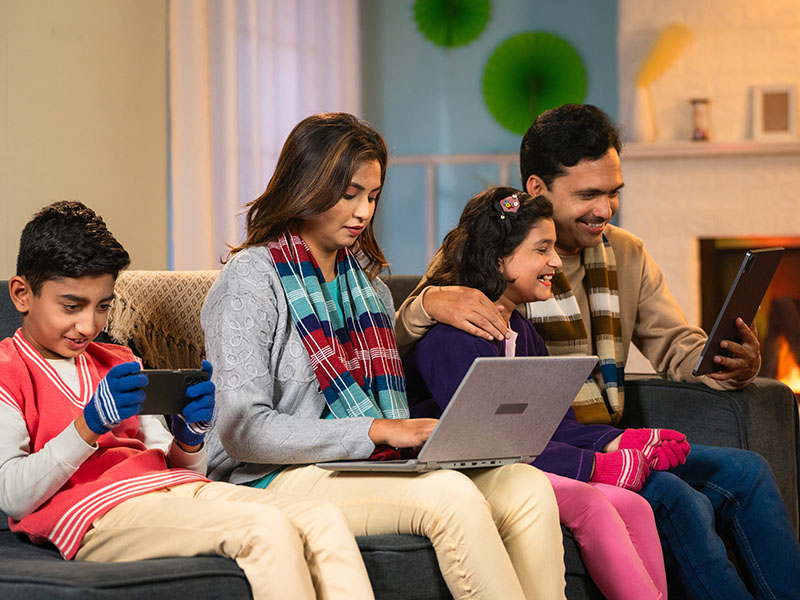No products in the cart.
Growing Appeal of Digital Minimalism: Insights from a Generational Survey
In a world increasingly dominated by screens, finding a balance between our digital and offline lives is becoming more challenging. While technology enhances our lives in many ways, constant connectivity can take a toll on our mental health and well-being. This growing concern has led to a rising interest in digital minimalism—a practice focused on reducing unnecessary digital distractions to regain control over one’s time and attention.
ExpressVPN’s recent survey on limiting tech for mental health sheds light on how different generations approach digital minimalism and their struggles with managing screen time, leading to some interesting insights.
Understanding Digital Minimalism
Digital minimalism is more than just limiting screen time; it’s about intentionally using technology in ways that align with your values and priorities. The goal is to focus on meaningful digital interactions while cutting back on mindless scrolling, notifications, and digital noise. The trend is gaining momentum, particularly among younger generations, who are increasingly aware of the negative impacts of excessive screen time.
Did you know that 46% of Gen Z are taking proactive steps to limit their screen time? This shift toward mindful tech usage is driven by a growing awareness of the links between screen time and mental health. Gen Z is actually leading the charge for digital detoxes, recognizing that constant digital engagement can lead to stress, anxiety, and feelings of being overwhelmed.
Generational Differences in Screen Time Management:
Younger generations, particularly Gen Z and Millennials, are more likely to acknowledge the negative impact of excessive screen time and actively seek ways to reduce it. 29% of Millennials reported cutting back on screen time to lower stress levels, while Boomers, who tend to be more comfortable with their digital habits, are less inclined to adopt digital minimalism practices.
Interestingly, 35% of Boomers feel comfortable with their screen time usage, suggesting a generational divide in attitudes toward digital consumption. While Boomers may be less concerned about the potential downsides of screen time, younger generations are more attuned to the mental health risks associated with prolonged digital exposure.
 The Psychological Barriers to Reducing Screen Time:
The Psychological Barriers to Reducing Screen Time:
Despite the growing appeal of digital minimalism, reducing screen time is easier said than done. There are several psychological barriers that prevent people from successfully cutting back. One of the most significant challenges is the fear of missing out (FOMO). About 40% of Gen Z respondents admitted that FOMO keeps them glued to their screens, fearing they might miss out on important updates or social interactions.
Additionally, the addictive nature of social media and digital platforms makes it difficult to break free from constant notifications and the dopamine hits they provide. Additionally, digital minimalism is not a one-size-fits-all approach; individuals must find the best strategies for their unique lifestyles and needs.
The Future of Digital Minimalism:
The shift toward digital minimalism is not just a passing trend; it’s becoming a vital component of modern wellness strategies. As more people recognize the importance of balancing digital and offline life, we can expect to see continued growth in this movement. Parents, in particular, are increasingly concerned about the impact of excessive screen time on their children, with 83% expressing anxiety over their kids’ digital habits, reflecting a growing awareness of the need for healthier digital boundaries.
In conclusion, digital minimalism is a response to the growing digital overload that many people face today. With generational differences in how screen time is perceived and managed, it’s clear that this trend is evolving as society seeks better ways to balance technology with well-being. Whether driven by concerns about mental health or the desire for more meaningful connections, the pursuit of digital minimalism is here to stay, and its influence will likely continue to shape our relationship with technology.
















Add comment